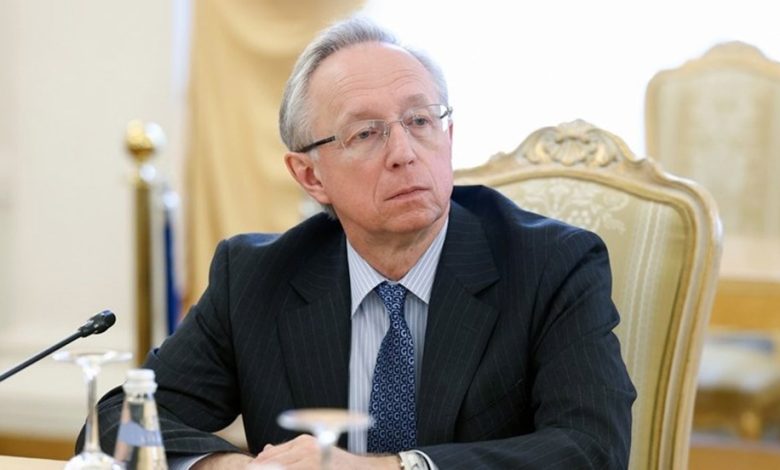
Russian Deputy FM Says Georgia “Learned Lesson” from 2008 War
In an interview with Russia’s newspaper Komsomolskaya Pravda, Russian Deputy Foreign Minister Mikhail Galuzin said that Georgian authorities have “learned a lesson” from the 2008 Russia-Georgia war, or what he called a “criminal adventure.” Galuzin noted that at present the Georgian authorities “aim at the peaceful return” of Abkhazia and South Ossetia” and instead urged Georgia to recognize the “independence” of the Russian-occupied regions of Abkhazia and Tskhinvali.
When asked about the Georgian Prime Minister Irakli Kobakhidze’s mention of the prospects of restoring Georgia’s territorial integrity, Galuzin said that that the reaction in Sokhumi and Tskhinvali to these statements “speaks for itself.” He said: “Abkhazia and South Ossetia [occupied Tskhinvali region] made their sovereign choice back in 2008, after the Mikhail Saakashvili regime tried to forcefully return one of these republics to Georgia and threatened the other with similar actions.”
The Russian official said: “As we understand it, the Georgian authorities have learned a lesson from this criminal adventure and are aiming to “return” Abkhazia and South Ossetia by peaceful means. First of all, we are talking about Georgian “reintegration” programs and initiatives, the main of which is “Step to a better future”. He added: “Abkhazians and South Ossetians have repeatedly expressed their negative attitude to attempts to “dilute” their sovereign status and bring them under Georgian jurisdiction, noting that the only “step to a better future” would be the recognition of the independence of these countries.”
“For our part, we also believe that prerequisites for normalization in the “triangle” of Sokhumi – Tbilisi – Tskhinvali will appear after Georgia realizes the existing realities and is ready to build relations with the republics on the basis of the principles of equality, mutual respect and consideration of each other’s interests,” Galuzin said, adding that “legally binding guarantees of non-use of force” between Georgia and its occupied territories and “resolving the issue of delimitation of the border between them with subsequent demarcation, are of key importance.”
Galuzin also discussed broader geopolitical concerns in the post-Soviet space, accusing the West of employing a “divide and conquer” strategy to destabilize the region and weaken Russia’s influence. He criticized Western influence on Armenia, Moldova and emphasized the importance of “historical ties” and the preservation of the Russian language in maintaining regional stability.
Also Read:
This post is also available in: ქართული Русский